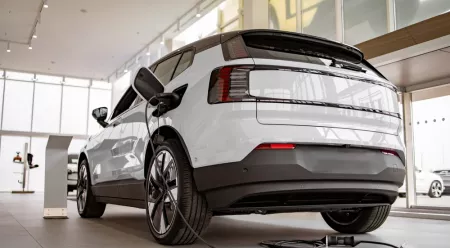Leasing a vehicle is a fantastic option for Canadian drivers that don't want to feel tied down to a single car for several years. As you likely know, leasing allows you to essentially "rent" a vehicle for an extended period (often referred to as your term). After your lease ends, you have the option to purchase the same car, purchase a new vehicle or lease a different model.
However, if you've ever leased a vehicle before, you know that it's not cheap, especially if you have a taste for luxurious models or brands. If you're looking for a way to save money throughout the leasing process, you may want to consider taking over a car lease.
If you've never taken over a lease before, you're likely asking yourself questions like, "how does a car lease takeover work?" or "does a car lease takeover affect the price of my car insurance?".
We're glad you asked! You can find the answers to these questions, and more, in the following paragraphs.
What exactly is a car lease takeover?
As the name implies, a car lease takeover is transferring a lease agreement from one driver to another. Upon doing this, the new lessor takes full responsibility for the vehicle and must agree to the pre-existing terms and conditions.
START A QUOTE
How does lease takeover work in Canada?
Here's a simple example of how lease takeovers work:
Driver A agreed to a car lease with a two-year term. After six months, Driver A decides that the vehicle isn't the right fit. Instead of terminating the car lease agreement (which can come with a variety of hefty fines), Driver A asks Driver B if they're interested in taking over the lease.
After giving it some thought, Driver B agrees to take over the lease. Driver B now can use the leased vehicle for the next 18 months (as long as Driver B makes timely payments and respects the conditions of the agreement).
After 18 months, Driver B can lease a new model, purchase the current model or simply walk away scot-free.
Lease takeover pros and cons that you should know
There are several positive and negative aspects of taking over a lease that drivers should know about before committing to an agreement.
Some of the positive aspects include:
- Original lessor occasionally offers perks
- Helps save money
- Freedom to try new vehicles every few years
Some of the negative aspects include:
- Kilometre limits
- May have to cover wear-and-tear expenses
- You don't technically "own" the vehicle
Drivers should keep these factors in mind if they plan to take over a lease in the near future.
How does a car lease takeover help you save money?
As mentioned above, lease takeovers can help drivers save a pretty penny throughout their terms.
Here are some of the primary ways that car lease takeovers help drivers save their hard-earned cash:
Lower barrier of entry
If you've ever purchased or leased a car in the past, you know how vital your down payment is. Your down payment helps determine how much (and how long) you'll be making car payments.
If you're low on cash, a hefty down payment may seem discouraging. Thankfully, you can skip the down payment by agreeing to a car lease takeover.
When you take over a car lease, you generally don't have to make a down payment (this has been taken care of by the previous lessor).
Save on monthly payments
Similarly, drivers who take over car leases generally make lower monthly payments. This is due to the fact that the price of your car lease payments is directly tied to the vehicle's depreciation rate during your term. If a vehicle has accumulated a year's worth of road time, it's already lost a significant amount of value. Thus, your monthly payments will be noticeably lower.
Sell the vehicle for a profit after your term expires
In some cases, you may be able to make a profit off of a car lease takeover. But, before diving into the nitty-gritty details, let's define two important terms:
Resale value - the price someone expects to receive after selling an item at market value.
Residual value - the price that a dealer expects to receive at the end of a vehicle's lifespan.
If the resale value of your vehicle is greater than the residual value of the vehicle, you're in a rather lucrative situation.
After your term has expired, you can purchase the vehicle at the residual value. You then can sell the vehicle at market price, which may net you a few thousand dollars.
The exact price that you'll receive depends on your particular model's residual value and the model's market value in your geographical region.
Will taking over a lease influence your car insurance rates?
Simply put, no.
Canadian insurance companies do not base insurance rates on whether you've purchased or leased your vehicle. This is because neither leasing or purchasing a vehicle are viable factors for determining an objective risk level.
But, Canadian drivers should know that the following factors do play a role in determining the price of your leased car insurance rates:
- Age of the driver (drivers under the age of 24 tend to pay more for car insurance)
- Gender of the driver
- Make of the vehicle
- Vehicle model
- Yearly kilometres driven
- Driving history
- Insurance claims history
- Location
- Marital status of the driver
Do you feel like you're paying too much for car insurance in Canada? You're not alone — that's why countless drivers rely on Surex to find the most affordable quotes in the country. Our team works side-by-side with the most reliable car insurance providers in Canada. This means that you can expect high-quality, competitive quotes that are personalized to your needs and budget.
Contact one of our insurance brokers to learn how you can save 25% on your leased car insurance payments. It's never the wrong time to start saving.
Will you take over your next car lease?
As you now know, taking over a lease is an outstanding way to save money on your next ride. But, before speeding off into the sunset, remember that taking over a lease comes with its fair share of risks. Be sure to take these risks into account before making a final decision.



